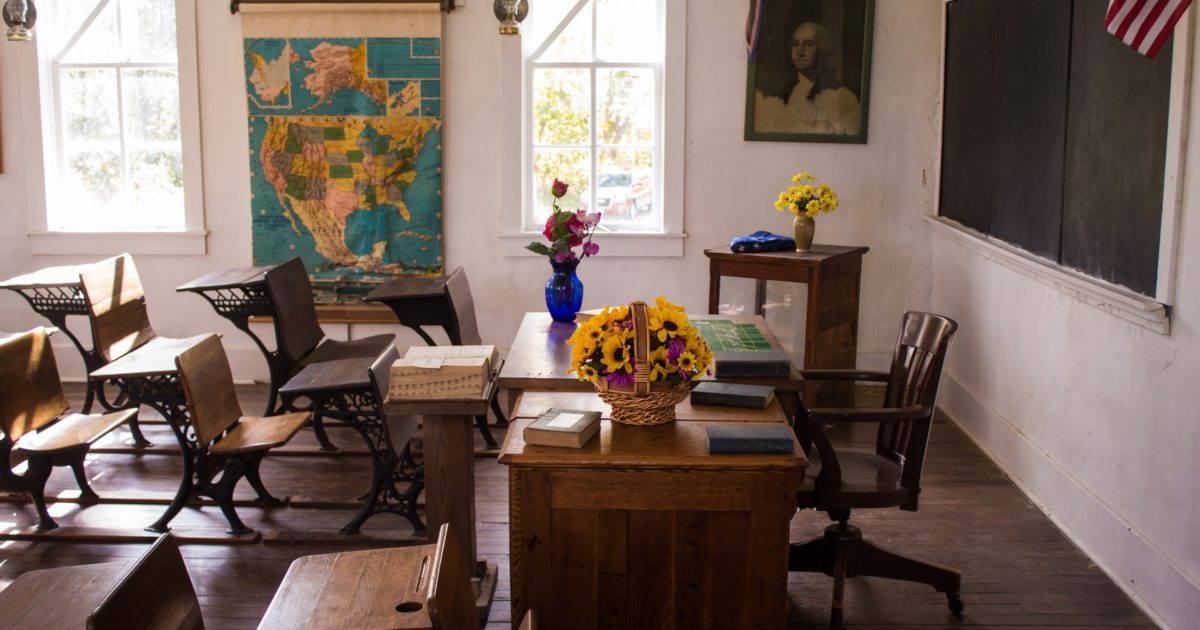Many of you reading this know me primarily as a right-leaning political commentator who freely shares opinions on Twitter and occasionally via this outlet as an opinion contributor. While these descriptions are accurate, vocationally I consider myself first and foremost to be a teacher. Since completing my masters, I have taught in the college classroom with the exception of two years during which I taught high school English. In the fall, I will return to the high school classroom, and this move and the preparations that come with it have prompted some deep thinking about my job and, in a broader and more important sense, the job of the high school literature teacher and the enormous power that accompanies this vocation. At a time when our nation is thinking deeply about the future of education, I have a warning for you that I think is worth considering.
What I want to say today, my thesis, if you’ll allow the term, and what I want you to walk away understanding is this: teachers wield tremendous power in the classroom, perhaps in ways you are unaware or have never considered if you’ve never been in charge in a classroom. This is true of every teacher regardless of grade or subject taught; nuances in language and tone that are not detectable in any lesson plan can impact a child’s perception not only of particular subjects and people, but of himself. I posit that at the elementary and secondary level there is perhaps no teacher more powerful and potentially impactful than the individual teaching your child literature. I say this as a former and future high school literature teacher.
I am an avid defender of literature. I won’t join your cause if you champion removing literature from the high school classroom because its subject(s) or themes are too adult or otherwise controversial for teenagers. They know about sex. They know about racism. Unfortunately, many of them know about a lot of the world’s evils by the time they reach my classroom at seventeen or eighteen years of age.
In The Picture of Dorian Gray, Oscar Wilde asserts that, “The books that the world calls immoral are books that show the world its own shame.” Novels that often land on banned lists do not create the realities they depict, and removing the novels from shelves will do nothing but deny students access to excellent literature every American student ought to read. These novels present students with well-written scenarios that reflect harsh realities students need to read and discuss with their peers and a capable, mature, moral teacher. It is this last piece of the puzzle, the teacher, that is too often the missing piece in the literature classroom.
The high school literature classroom, especially in the senior year, is not a place to pretend the world is simple and kind and plagued only by problems that can be solved quickly and easily; it is a place to read and discuss excellent literature that explores the plight of man, and therein lies the power inherent in the position of teaching high school literature. I do not think it is too much for parents to demand to know more of a literature teacher’s worldview. It is the lens via which she will spend months exploring all manner of issues with their minor child.
An individual’s worldview will color her approach to literature, and thus it will color her approach to teaching literature. To pretend otherwise is naive folly. This is one reason I am returning to my former job at a private school, which impacts not only how I teach but what I am allowed to teach. We read C.S. Lewis’s The Screwtape Letters. We discuss Satan and the reality of heaven and hell and Satan’s desire to drag us all to hell with him. We run the gamut in terms of great literature, and I do not wish to attempt to teach The Awakening or As I Lay Dying or Nineteen Eighty-Four or any of the novels I love so much in a setting in which I am asked to cover topics like sin and death and adultery and fornication absent the lens of my Christianity.
You need to know what your child is reading in school, and you need to ask questions about how that material is being covered. The answer is not to ban excellent books because Edna Pontellier has an affair or because Winston Smith expresses violent sexual desires. The answer is to have meaningful discussions about these matters, to discuss why dystopian literature often features a government that attempts to regulate sex and reproduction and how that thwarts God’s intent for his creation in physical, spiritual, and emotional ways. The individual leading these discussions with your child, her views about God, morality, adultery, the nuclear family, etc., should be of grave concern to you. Parents often concern themselves so much with the books being taught and think little to nothing of who is teaching the material and how she views the world.
Follow Anna Zeigler (@ajzeigler) on Twitter.
The First TV contributor network is a place for vibrant thought and ideas. Opinions expressed here do not necessarily reflect those of The First or The First TV. We want to foster dialogue, create conversation, and debate ideas. See something you like or don’t like? Reach out to the author or to us at ideas@thefirsttv.com.

